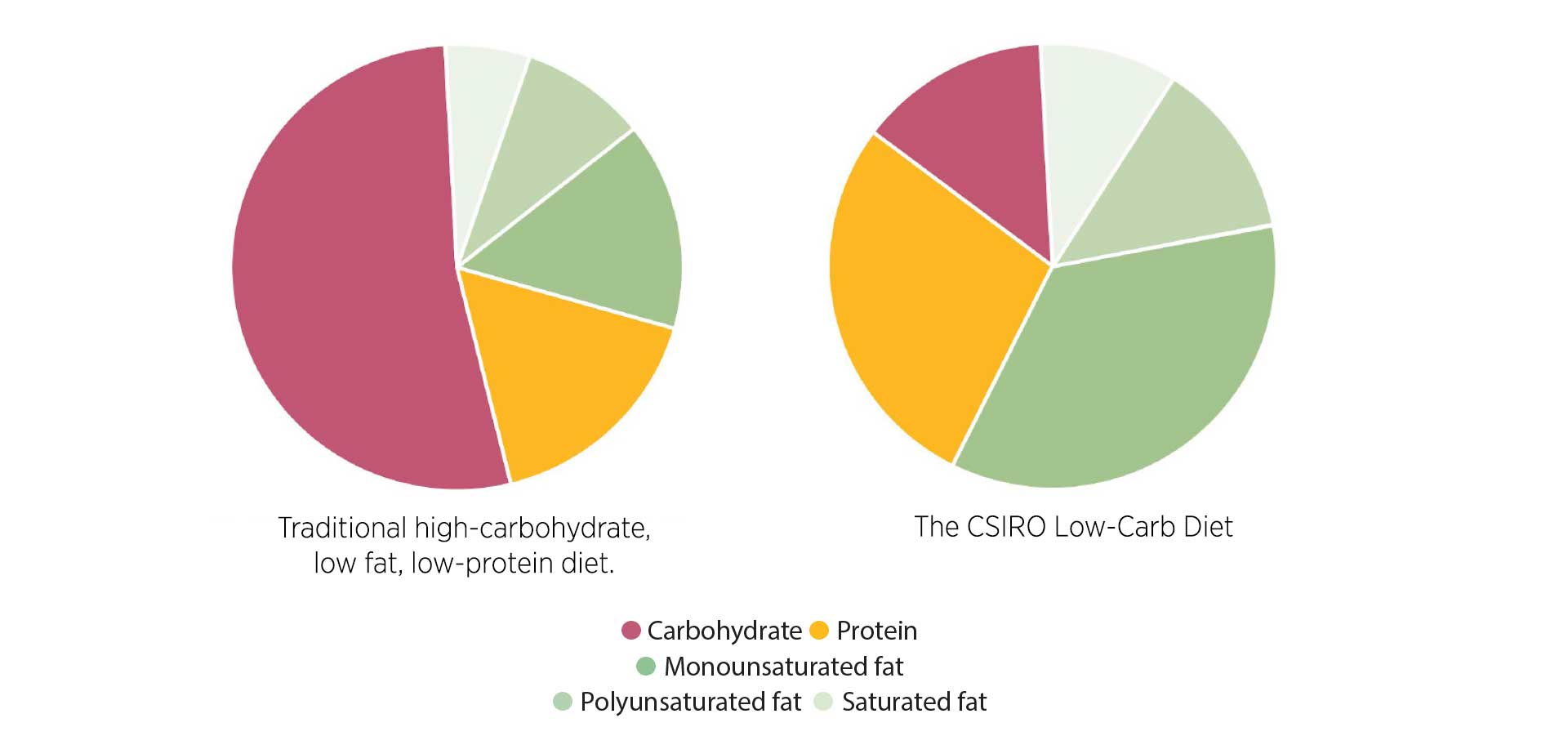Nutritional science is constantly evolving and scientists at Australia’s Commonwealth Scientific and Industrial Research Organisation (CSIRO) are at the forefront of research that explores how food combinations and dietary patterns affect health, both in terms of weight loss and the management of weight-related disease such as type 2 diabetes and heart disease.
For many years, the CSIRO has been investigating the health effects of a much lower carbohydrate diet.
Between 2012 and 2014, its researchers undertook one of the largest nutritional intervention studies conducted in Australia.
From these results they developed the CSIRO Low-Carb Diet, a new lifestyle programme for type 2 diabetes, which is lower in carbohydrate and higher in healthy fats than the organisation’s previous Total Wellbeing Diet.
Both diets are high in protein, which has advantages for body composition and appetite control.
Where the new Low-Carb Diet stood out was the degree to which it helped participants manage their weight and normalise their blood glucose levels.
The diet does not exclude carbs entirely, but in the early stages limits them to 50g a day (many diets suggest a carb intake of over 130g per day).
Compared to a traditional high-carb approach, this Low-Carb Diet dramatically blunts blood-sugar levels after meals, improves blood-cholesterol profiles and helps reduce diabetes medications.
And the good news is it isn’t difficult to sustain, says CSIRO associate professor Grant Brinkworth.
“The dietary pattern is highly palatable and consists of a wide variety of food options across all food groups, with plenty of options for flexibility.”
There are many versions of low-carb diets, but the principles and practice of this diet are based on targeted, original CSIRO research backed by scientific evidence and proven dietary principles from around the world, such as the Mediterranean diet.
This research is leading a paradigm shift in how we think obesity and related diseases, particularly diabetes, should be treated.
“Since the CSIRO produced the first Total Wellbeing Diet book [in 2005], dietary recommendations are starting to acknowledge no one dietary approach may fit all individuals for weight and diabetes management, and a variety of dietary approaches may be required to individualise management based on personalised preferences,” says Grant Brinkworth.
“However, our research, combined with research conducted by highly respected laboratories around the world, is suggesting a diet lower in carbohydrates and higher in protein and healthy (unsaturated) fat may be a more effective healthy eating pattern for people with type 2 diabetes and metabolic syndrome or insulin resistance.”

Benefits of the Low-Carb Diet
Improves your mood and quality of life.
Maintains your brain function.
Provides adequate fibre.
Rich in important nutrients.
Restricts your intake of refined sugar.
Sustains physical performance.
Maintains kidney function.
Maintains bone health.
Environmentally sustainable.
Affordable.

The science behind the diet
The Low-Carb Diet combines the latest evidence to create a nutritionally complete, very low-carbohydrate, high-protein and high-unsaturated-fat eating plan. The results of the rigorous clinical research trial of the diet show that the benefits it provides are huge.
In this clinical study, 115 overweight or obese adults with type 2 diabetes were divided into two groups. Those in the first group were to consume an energy-restricted, very low-carb, high-protein, high-unsaturated-fat and low-saturated-fat diet – in other words, the Low-Carb Diet.
Those in the second group ate an equally energy-restricted, high-carb, low-fat diet. Both groups participated in 60 minutes of combined aerobic and resistance exercise three times a week. The trial ran for 52 weeks.
During the trial, each participant’s weight, body composition, blood glucose control, cardiovascular disease risk, markers of kidney function and psychological wellbeing were assessed regularly.
The number of people who completed the trial was similar for the two groups. The Low-Carb Diet group experienced a reduction in diabetes medication twice that for the high-carb group.
This means fewer side-effects, a lower risk of hypoglycaemia and reduced costs. Similarly, the reduction in daily glycaemic variability in the Low-Carb Diet group was three times that in the high-carb group. Blood triglycerides also decreased more on the Low-Carb Diet, while HDL (good) cholesterol increased.
Edited extract from The CSIRO Low-Carb Diet by Associate Professor Grant Brinkworth and Pennie Taylor, published by Macmillan.

